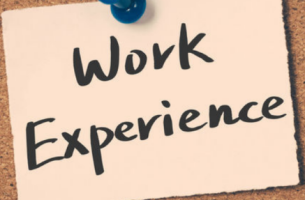
James Lawson
Apr 07, 2021
2021 Outlook On HR & People - All Recruitment Trends To Anticipate
The HR & people specialism has changed dramatically in recent years - especially given technological disruption, Brexit and, of course, the pandemic. As a result, the usual recruitment trends related to this area are looking very different for 2021. We've nailed them down here, detailing the likes of experience, qualifications and necessary skill sets required, as well as the needs of candidates following the most unstable year in modern history.
Experience
Previously, many HR employees were transactional, dealing with the likes of payroll and staff leave - but companies need more than these generalists now. Organisations are integrating their approach to people and talent with the business strategy, so they're seeking individuals that can demonstrate exactly how they add value. HR roles at director level require more commercial acumen and exposure for this reason. What's more, disruption through technology has made it vital for HR professionals to have a deep understanding of data. With the use of AI tools now falling under this function, digital capabilities are no longer a 'nice to have' - they're absolutely essential. Candidates need to be able to audit for unequal outcomes; for instance, when AI is used for first-stage screening in recruitment, it must be checked by HR for quality and compliance. While last year has brought about a lot of change, one of the recruitment trends that remains is the need for CIPD qualifications - these are a must-have for all HR & people roles, except those at entry level.
Skills
In terms of essential skills, strong communication capabilities are, as always, extremely important. The need for empathy has risen too. This year, it's anticipated that wellbeing and the workplace environment will remain key HR topics, as employees learn to adapt to the lack of work-life separation caused by operating from home. Meanwhile, HR leaders will need great coaching skills to successfully lead their remote workforce, along with project management abilities to ensure everything is kept on track. It's also essential for those in HR to show resilience. The effects of the pandemic have meant that HR & people professionals need to be agile and able to successfully handle potential restructures and redundancies.
What are candidates looking for?
As for what the best talent is seeking in a role, they continue to demand a decent salary, although equal value is placed on the company having a purpose they can get behind. Our 2021 Salary & Benefits Guide also revealed that 97% were satisfied with being able to work remotely. This may be attributed to the demographics of the profession (for instance, there's a high female-to-male ratio), culminating in a workforce that often requires flexitime, job sharing or term-time work only, as well as the ability to buy or sell holidays. Yet the existing demand for this has unsurprisingly increased since the coronavirus outbreak. Remote working is so widespread in the HR & people specialism that it is now almost expected in the sector. Because of this, working from home or a change of location were among the least likely reasons to seek out a new role. Our Salary & Benefits Guide also found that 'professional studies' was the second most valued benefit. This along with the requirements for a CIPD qualification to progress in the sector, should come as no surprise but is nonetheless an important consideration for employers.
Download the guide to discover more
Cast UK's report unearthed other valuable recruitment trends and statistics too. It found that other specialisms, such as logistics, transport & warehousing, were also heavily affected by the events of 2020. It further explores expected salaries, candidate satisfaction levels, and advice on the likes of IR35 and employer branding. Simply put, it has everything you need to know to get ahead this year.
Discover all the facts and insights by downloading the Salary & Benefits Guide 2021 here.



